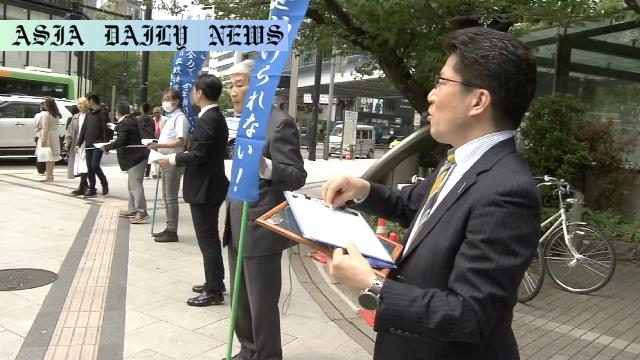Abduction Issue: Families urge action for the swift return of 12 abductees by North Korea before remaining relatives pass away.
- Families of Japanese abductees collected signatures in Tokyo, reviving a 12-year effort.
- They urged immediate governmental action to return 12 unaccounted Japanese citizens taken by North Korea.
- The group emphasized the urgency due to the aging relatives of abductees.

Background of the Abduction Issue
The issue of North Korea’s abduction of Japanese nationals continues to remain a deeply emotional and unresolved matter. During the 1970s and 1980s, 17 Japanese citizens were officially recognized as abducted by North Korea to serve purposes such as intelligence training or espionage-related activities. While five individuals were repatriated in 2002 following a bilateral summit, there remain 12 citizens whose whereabouts and fates are still unaccounted for. For decades now, families of the abductees have sought answers, closure, and justice, as the scars of these disappearances linger in the hearts of many.
Reviving the Fight: A 12-Year Break Ends
On a bright Saturday in the bustling Ginza district of Tokyo, the families of the abductees undertook a significant step, reigniting their petition campaign after 12 years of inactivity. More than 20 people, comprising family members of the abductees and their supporters, gathered along the sidewalks to engage the public with their cause. The petition particularly aimed at pressuring the Japanese government and stimulating international cooperation to ensure the safety and return of the abductees while the aging parents or immediate relatives of those missing are still alive.
The Faces Behind the Fight
Stories of sorrow and stoic determination define this group. At the forefront was Yokota Takuya, leading the movement as the younger brother of Yokota Megumi, who was abducted at the tender age of 13. Another significant participant was Iizuka Koichiro, who has been seeking answers regarding his mother, Taguchi Yaeko, who was snatched away when he was just a year old. Their heartfelt appeals underscored the emotional toll of the issue and the vital necessity of resolving it without prolonged delays.
The Significance of Timing and Advocacy
Time is of the essence in this fight. Yokota Megumi’s mother, the 89-year-old Yokota Sakie, remains the last surviving parent among the abductees’ relatives. Tragically, Arimoto Akihiro, father of abductee Keiko, recently passed away in February at the age of 96, casting an ominous shadow over the deteriorating chance that parents of abductees will reunite with their children in their lifetimes. Saturday’s effort was a tangible reminder of the urgency required to resolve this longstanding issue, and a testament to human resilience and hope.
International Outreach and Commitment
Taking their advocacy beyond Japan, the families are scheduled to visit Washington in the coming week. Their agenda includes meetings with high-ranking officials from the U.S. government, seeking to galvanize international attention and intervention in resolving the plight of their abducted loved ones. These efforts reflect their understanding that global pressure and diplomacy may be pivotal in initiating meaningful dialogues with North Korea, given the delicate geopolitics of the region.
The Broader Implications
The abduction saga is not merely an emotional plea from a select group of families but a core issue involving human rights, national sovereignty, and international diplomacy. Japan’s efforts at returning its citizens also intersect with broader global concerns involving North Korea’s destabilizing actions, including missile tests and authoritarian policies. As such, this heartfelt campaign serves as a microcosm of a much larger web of global diplomatic challenges.
A Call to Action
As the plight of these families gains renewed urgency, their voices serve as a call to governments, institutions, and individuals to remember the power of collective action. Global attention, consistent pressures, and continued advocacy are imperative to bringing closure to the painful chapter of these missing individuals. The families, as embodied by figures like Takuya and Koichiro, remind us of the power of love and perseverance in the face of insurmountable odds.



Commentary
The Emotional Burden of Families
The emotional weight carried by the families of the 12 Japanese nationals unaccounted for is unimaginable. For decades, these families have lived in limbo, torn between hope and an unyielding sense of uncertainty. The fact that parents and close relatives pass away unable to reunite with their loved ones adds a deep layer of tragedy to the story. Their resolve, however, sends a powerful message about the depths of love and commitment, leaving an indelible mark on all who watch their campaign.
Urgency in Advocacy
Time, as stressed throughout the news, is of the utmost importance. With Sakie Yokota as the lone surviving parent, the weight of urgency is palpable. The advances made through the campaign, rekindling efforts after a 12-year hiatus, signify the resilience of these families and the necessity to act swiftly. Governments, especially Japan’s, must recognize the human cost of inaction and amplify their efforts without succumbing to bureaucratic delays.
The Intersection of Global Diplomacy
On an international level, the abduction issue highlights the broader challenges posed by North Korea. That these families aim to meet with U.S. officials underscores the significance of fostering international allies for such causes. It is both inspiring and eye-opening to see grassroots advocacy transcending borders in its search for justice and resolution. Solutions hinge not just on efforts within Japan but also on creating a united international front to push for accountability and basic human rights recognition.
A Reminder for All Humanity
At the heart of this issue lies a profound question about human dignity and justice. This is not just the story of 17 victims but a reflection of how societies respond to adversities. It challenges governments, institutions, and individuals to do better, to amplify voices calling for justice, and to tirelessly work towards creating pathways to resolution. The families of these abductees exemplify the extraordinary power of determination in the face of despair.